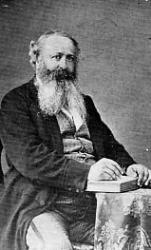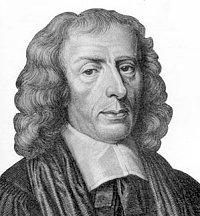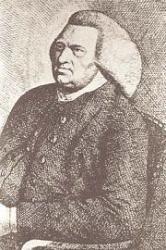Planning worship?
Check out our sister site, ZeteoSearch.org,
for 20+ additional resources related to your search.
- |
User Links
Person Results
Edmund P. Clowney
Author of "Who Shall Ascend the Mountain of the Lord" in Trinity Hymnal (Rev. ed.)
Edmund P. Clowney
Salvatore Ferretti

1817 - 1874 Person Name: Salvatore Ferretti, 1817-1874 Composer of "ENDSLEIGH" in The Cyber Hymnal Born: September 15, 1817, Florence, Italy.
Died: May 4, 1874, Florence, Italy.
Buried: English Cemetery, Florence, Italy.
Ferretti, Salvatore (b. 1817, d. 1874), lived for a time in England, where he edited a journal entitled, L'Eco di Savonarola, and in 1850 published Inni e Salmi ad uso dei Cristiani d' Italia (Lond., Partridge and Oakey). He afterwards returned to Florence, where he established a Protestant orphanage. Six of his hymns are in common use.
--John Julian, Dictionary of Hymnology, Appendix I (1907)
Salvatore Ferretti
Susannah Harrison
1752 - 1784 Person Name: Susanna Harrison Author of "I, Jesus, am ascended high" in Hymns, Original and Selected, for the use of Christians Harrison, Susanna, invalided from her work as a domestic servant at the age of 20, published Songs in the Night, 1780. This included 133 hymns, and passed through ten editions. She is known by "Begone, my worldly cares, away," and "O happy souls that love the Lord." Born in 1752 and died Aug. 3, 1784.
--John Julian, Dictionary of Hymnology, New Supplement (1907)
================================
Harrison, Susanna. (1752--August 3, 1784, Ipswich, England). The preface to the first edition of her collected hymns, Songs in the night, 1780, states that she was "a very obscure young woman, and quite destitute of the advantages of education, as well as under great bodily affliction. Her father dying when she was young, and leaving a large family unprovided for, she went out to service at sixteen years of age."
In August 1722, she became ill, probably with tuberculosis, and returned to her mother's home. She taught herself to write and in her remaining years she wrote 142 hymns which, with a few meditations, were published as Songs in the night by an anonymous editor, perhaps her rector. So sincere yet vivid is the expression of her faith as she faced certain death that by 1847 there had been eleven editions printed in England and seven additional ones in America.
Individual hymns remained popular in America during much of the nineteenth century due to the constant preoccupation with death in both urban and frontier life, reflected in the large sections of funeral hymns in most hymnals.
--Leonard Ellinwood, DNAH Archives
Susannah Harrison
Martin L. Seltz
1909 - 1967 Person Name: Martin L. Seltz, 1909-67 Translator of "See God to Heaven Ascending" in Worship Supplement
Martin L. Seltz
Johannes Matthaeus Meyfart
1590 - 1642 Person Name: Johann M. Meyfart Author of "Jerusalem, Thou City Built On High!" in The Cyber Hymnal Meyfart, Johann Matthäus, was born Nov. 9, 1590 at Jena, during a visit which his mother (wife of Pastor Meyfart of Wablwinkel, near Waltershausen, Gotha) was paying to her father. He studied at the Universities of Jena (M.A. 1611; D.D. 1624) and Wittenberg, and was thereafter for some time adjunct of the philosophical faculty at Jena. In 1616, he was appointed professor in the Gymnasium at Coburg and in 1623 director; and during his residence at Coburg was a great moral power. When his colleagues in the Gymnasium made a complaint to the government regarding a dissertation (De disciplina ecclesiastica) which he published in 1633, he accepted the offer of the professorship of theology in the revived University of Erfurt. He entered on his work at Erfurt, July, 1633, was rector of the University in 1634, and in 1636 became also pastor of the Prediger Kirche. He died at Erfurt, Jan. 26, 1642 (Koch iii. 117; Allgemeine Deutsche Biographie xxi. 646, &c.).
Meyfart's devotional works (Tuba poenitentiae prophetica, 1625; Tuba Novissima, 1626; Höllisches Sodoma, 1629; Himmlisches Jerusalem, 1630; Jüngste Gericht, 1632) passed through various editions, and produced a great impression by their vivid picturing and their earnest calls to repentance and amendment of life. His well-meant efforts, by books and otherwise, towards raising the tone of student life in Germany, and his exposition of the excesses and defects in both academical and churchly life at that period, brought him much ill will and opposition, and did not produce useful fruit till much later. His hymns were few in number, and appeared mostly in his devotional books.
Only one of Meyfart's hymns has passed into English, viz. :—
Jerusalem, du hochgebaute Stadt. The New Jerusalem. This splendid hymn appeared in his Tuba Novissima, Coburg, 1626 [Ducal Library, Gotha], a volume containing four sermons preached at Coburg on the Four Last Things, viz. Death, Last Judgment, Eternal Life, and Eternal Punishment. It forms the conclusion of the third sermon (on St. Matt. xvii. 1-9) which is entitled "On the joy and glory which all the Elect are to expect in the Life everlasting." This conclusion is reprinted verbatim et literatim (i.e. with the introductory and closing sentences, and the connecting sentences between st. i., ii., iii. and iv.) in the Blätter für Hymnologie, 1883, pp. 120-124. The text of the hymn, in 8 st. of 8 1., is given unaltered, according to the marginal directions of the original (save st. vii. 1. 6, where the original is "Man spielt"), as No. 1537 in the Berlin Geistliche Lieder ed. 1863. Of it Lauxmann, in Koch viii. 669, says:—
"The hymn is a precious gem in our Treasury of Song, in which one clearly sees that from it the whole heart of the poet shines out on us. Meyfart had his face turned wholly to the Future, to the Last Things; and with a richly fanciful mysticism full of deep and strong faith, he united a flaming zeal for the House of the Lord, and against the abuses of his times."
He adds that the hymn was a great favourite with Charles Gützlaff, the apostle of China (died at Hong Kong, Aug. 9, 1851), whose last words were "Would God I were in thee" (st. i. 1. 3) ; and of Julius Schnorr of Carolsfeld, the well-known painter, whose last work was the illustrating of this hymn, and at whose funeral in 1872 it was sung. The popularity of the hymn was greatly aided by the magnificent melody, generally ascribed to Melchior Franck [born at Zittau, 1580 ; c. 1604, capellmeister at Coburg; died at Coburg, June 1,1639], but not yet traced earlier than to the Erfurt Gesang-Buch, 1663.
Translations in common use:—
1. Jerusalem, thou city built on high. A good tranlation of st. i.-iv., vii., as No. 112 in the Dalston Hospital Hymn Book, 1848.
2. Jerusalem, thou city built on high. A good translation of st. i., iv., vi., vii., by A. T. Russell, as No. 261 in his Psalms & Hymns, 1851. St. i., 11. 1, 2, 4 are from the 1848 translation. The form in Dr. Pagenstecher's Collection, 1864, No. 288, is i. 11. 1-4, ii. as 1848; i. 11. 5-8, vii. as 1851.
3. Jerusalem, thou city fair and high. A good and full translation by Miss Winkworth, in her Lyra Germanica, 2nd Ser., 1858, p. 220; repeated in her Chorale Book for England, 1863, No. 193, set to the melody of 1663. Included in full in the Ohio Lutheran Hymnal, 1880, and, abridged, in the Pennsylvania Lutheran Church Book, 1868, and the Uppingham and Sherborne School Hymn Book, 1874.
4. Jerusalem! high tow’r thy glorious walls. A good and full translation, by Bishop W. R. Whittingham, in the American Episcopal Hymns for Church and Home, 1860, No. 414; and the American Episcopal Hymnal, 1871. St. i., iv., viii. are in M. W. Stryker's Christian Chorals, 1885.
Translations not in common use:—
(l) "Jerusalem, thou city of the skies." In the United PresbyterianJuvenile Mission Magazine, Dec. 1857. (2) "Jerusalem! thou glorious city-height." By Mrs. Sevan, 1858, p. 19, repeated in L. Rehfuess's Church at Sea, 1868. (3) “Jerusalem, thou high-built, fair abode." In the Christian Examiner (Boston, U. S.), Sept. 1860, p. 254. (4) "Jerusalem, thou city rear'd on high. By Miss Manington, 1863, p. 94. (5) "Jerusalem! thou city towering high." By Miss Cox, in her Hymns from the German, 1864, p. 101, and in Lyra Mystica, 1865, p. 365. (6) "Jerusalem! thou city builded high." By Miss Burlingham, in the British Herald, April, 1866, p. 249, and Reid's Praise Book, 1872. (7) "Jerusalem! high tow'r thy glorious walls." A full and spirited translation by J. H. Hopkins, in his Carols, Hymns and Songs, 1882, p. 182, dated 1862. St. i., 11. 1-2, are taken from Bishop Whittingham's version. [Rev. James Mearns, M.A.]
-- John Julian, Dictionary of Hymnology (1907)
Johannes Matthaeus Meyfart
Allen William Chatfield
1808 - 1896 Person Name: Allen W. Chatfield Translator of "O Christ the King! since breath pent up so long" in Songs and Hymns of the Earliest Greek Christian Poets Chatfield, Allen William, M.A., born at Chatteris, Oct. 2nd, 1808, and educated at Charterhouse School and Trinity College, Cambridge, where he was Bell's Univ. Scholar and Members' Prizeman. He graduated in 1831, taking a first class in classical honours. Taking Holy Orders in 1832, he was from 1833 to 1847 Vicar of Stotfold, Bedfordshire; and since 1847 Vicar of Much-Marcle, Herefordshire. Mr. Chatfield has published various Sermons from time to time. His Litany, &c. [Prayer Book] in Greek verse is admirable, and has been commended by many eminent scholars. His Songs and Hymns of Earliest Greek Christian Poets, Bishops, and others, translated into English Verse, 1876, has not received the attention of hymnal compilers which it merits. One hymn therefrom, "Lord Jesu, think on me," is a specimen of others of equal merit, which might be adopted with advantage. He died Jan. 10, 1896.
-- John Julian, Dictionary of Hymnology (1907)
Allen William Chatfield
Henry More

1614 - 1687 Author of "When Christ His Body Up Had Born" in The Cyber Hymnal More, Henry, D.D., was b. at Grantham in 1614, and educated at Eton and Christ's College, Cambridge, where he graduated in 1635, and became a Fellow of his College in 1639. He declined various offers of high preferment. He spent his time mainly in the study of philosophy and as a private tutor. He died in 1687. In 1640 he published his Psychozoia, or the First Part of the Sony of the Soul, containing a Christiano-Platonic display of Life. In 1647 this was republished with additions as Philosophical Poems. His poems, collected and edited by Dr. Grosart, are included in the Chertsey Worthies Library. His "Philosopher's Devotion," beginning "Sing aloud! His praise rehearse," is given in Macdonald's England's Antiphon. His Memoirs were published in 1710. His Divine Dialogues with Divine Hymns added thereto were published in 1668. From a hymn in this work, beginning "When Christ His body up had borne," J. Wesley took 10 stanzas and moulded them into two hymns, which lie included in the Wesleyan Hymn Book, 1780, as "Father, if justly still we claim" (The Holy Spirit desired), No. 444; and "On all the earth Thy Spirit shower," No. 445. These hymns are in common use in Great Britain and America. [W. T. Brooke]
--John Julian, Dictionary of Hymnology (1907)
Henry More
James Relly

1722 - 1778 Author of "He that came down hath Ascended" in Psalms, Hymns and Spiritual Songs James Relly was born about 1722 at Jeffreston, Pembrokeshire, Wales, and died in 1778. He was converted to Christianity during the Great Awakening ushered in by George Whitefield. He worked under George Whitefield as a Calvinistic Methodist preacher and missionary. However, Whitefield and Relly separated ways over Relly's seemingly universalist teaching that all humanity was elect (i.e. saved) when Christ took the punishment for all sin when he died. He also departed from both the Calvinists and Methodists by taking the doctrine of Justification further, in teaching that believers no longer sin and the Law's sole purpose is to condemn humanity and point them to Christ.
He was the mentor of John Murray, the founder of the Universalist Church of America. Relly along with his brother John wrote Christian Hymns, Poems and Spiritual Songs in 1758, which John Murray had republished in America in 1776.
Dianne Shapiro; from an article by Alexander Gordon in Dictionary of National Biography, 1885-1900, vol. 48; Dictionary of Unitarian and Universalist Biography; and Disoriented. Reoriented. blog (https://disorientedtheology.wordpress.com/2013/08/29/all-shall-be-well-chapter-6-james-relly/)
James Relly
J. Lincoln Hall

1866 - 1930 Author of "O Jesus, My Saviour" in Boundless Love Used pseudonyms Maurice A. Clifton and Arthur Wilton.
===============
Joseph Lincoln Hall DMus USA 1866-1930. Born in Philadelphia, PA, to musical parents, he also was musical, having a good tenor voice. He was an organist and music teacher. At age 19 he led a 100 member choir for 10 years. He studied music and graduated with honors from the University of PA, later receiving a Doctor of Music degree from Harriman University, from which he was an alumnus. In 1896 he married Eva Victoria Withington, and they had four children. Three lived to adulthood, Lincoln, Ralph, and Philip. A musician, he was a great song leader and choral conductor, conducting campmeeting choirs in PA, OH, and FL, at the Gainesville Bible Conference as well. He became a gospel song composer, arranger, editor, and publisher. He wrote cantatas, oratorios, choir anthems, and hundreds of gospel songs. He also edited several hymnals. Along with Irvin Mack, he founded the Hall-Mack Publishing Company (later Rodeheaver). They published nine songbooks. He was a member of the 7th Street Methodist Episcopal Church in Philadelphia. He died in Philadelphia.
John Perry
J. Lincoln Hall


 My Starred Hymns
My Starred Hymns


